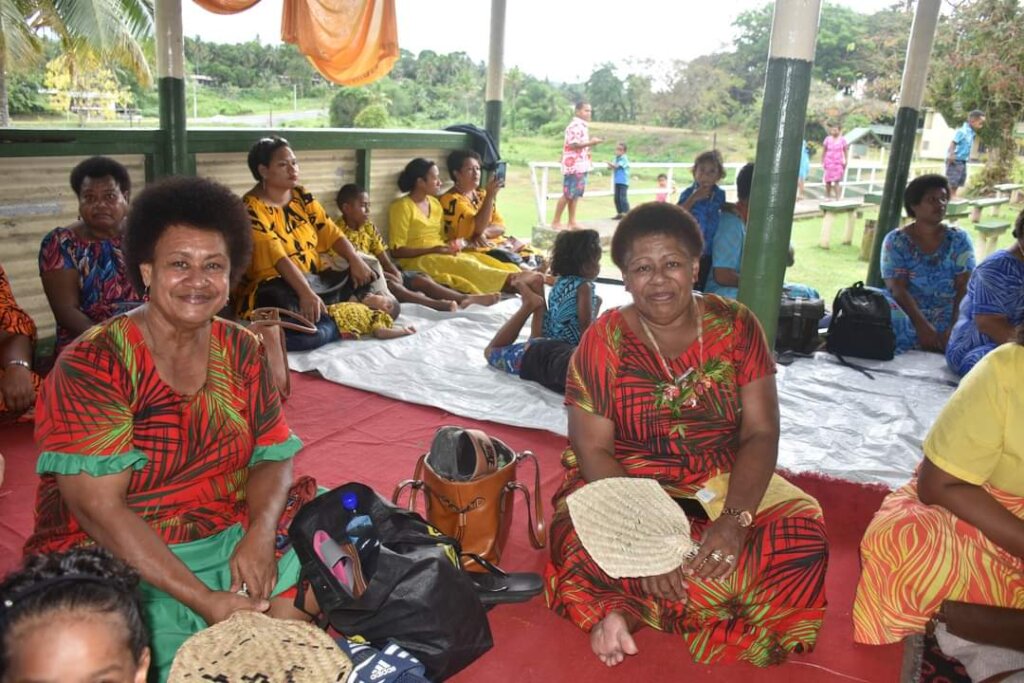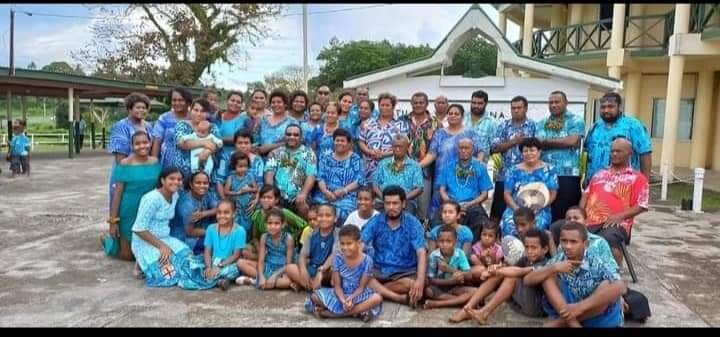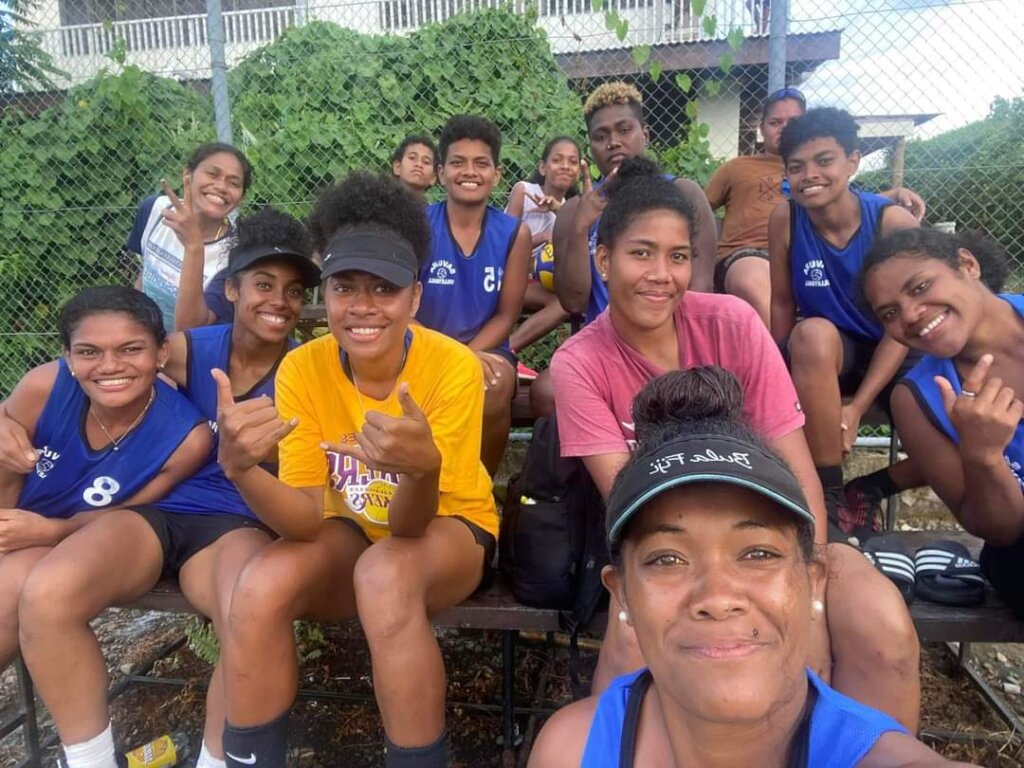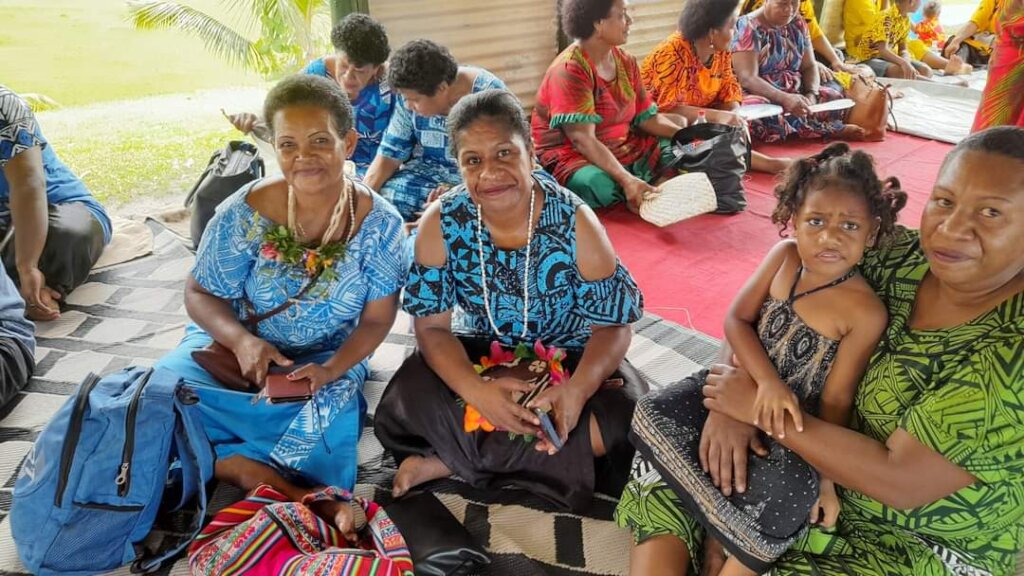By Verona Lucas | Project Leader
Virtues Project Fiji has been very active in the past three months, responding to requests from many organisations to learn about the Five Strategies of The Virtues Project™ so they are able to address issues such as parenting, community work, sporting events and other activities involving interaction with people. This activity has been carried out under the management of the principal facilitator together with the youth who were trained earlier this year to address violence against women and children.
The Virtues educators have visited eight communities so far with three presentations in the Suva area, two in Nadi, one each in Ba, Nausori and Sigatoka.
Out of the eight communities there were more than 150 participants attending, with eighty females and seventy males. The breakdown of the age category is as follows
17 - 21yrs 30
22 - 35yrs 70
36 - 50 yrs 30
50+ 20
It was noted that the majority of participants were youth.
In each community, presentations were made on The Five Strategies together followed by learning activities and a lot of sharing.
Presentations were also made on leadership style and parenting skills. Most of the youth were excited about the importance of being a parent using the knowledge of the five strategies.
Youth realized the significant role of a parent because most of the youth agree that they were not brought up by their parents using The Five Strategies. Most of them were emotional about the topic, wishing to turn back time so that their parents could have learned about The Five Strategies.
The adults who attended the presentation also had the same sentiments. They realized that they had not used the best method of raising their children and now regret how they raised them without their children’s wellbeing in mind. They all agreed that they had raised their children with negative words and noticed how their children now behave negatively toward them.
With what they have learned at the workshops they have agreed to share the importance of The Five Strategies and to empower young families and the youth in their respective areas to hone these skills and understand the importance of parenting skills using the virtues strategies.
One of the skills that was also highlighted was the importance of listening, an element of the fifth strategy of Companioning.. This is something that they realize they don't take notice of in their daily lives. They now understand the importance of being a listener. The participants shared that now with the high numbers of social issues happening in Fiji that by being a good listener they can notice different behavioural changes happening to someone and where they can intervene and contact relevant service providers to deal with it. This is particularly important to address the issue of violence against women and children. To be a good leader and a good parent, listening skills are very important.
One thing that was highlighted and discussed in all the communities is recognizing the qualities of a good leader. Sharing also concerns the upcoming elections and the youth have realized that they will not be swayed by political party speeches but by understanding the Virtues it will provide them the wisdom to choose wisely.
DETAILS of five of the eight workshops are reported below. The impact on the three remaining communities were similar to these.
1. A sugar cane farming settlement near Nadi, the international airport with 26 participants (8 women, 6 men, 12 youth) age range 13 to 60 years.
Following presentations on each of the 5 strategies there was group work on each strategy.
The outcome of this workshop was that: Virtue’s skills will assist them deal with the post covid crisis that they face. They understand the importance of family time together, recognize the need to have a purposeful life and use the virtues cards to remind them of their journey through life.
2. Naimataga Settlement outside Lami near the capital Suva with 30 youth participants (12 males, 18 females) age range 15 to25 years
Some youths are still at high school, some have employment, and some are unemployed. Presentations on the five strategies were made. The youth facilitators shared what they are dealing with and how the strategies have helped them deal with the issues facing them, covering such things as smoking, alcohol and drugs being used to face problems of peer pressure, family problems as many are from broken homes being raised by grandparents, extended families, or a single parent.
The outcome: Youth participants recognize they have a purpose and they agreed to find that purpose. They would work together in unity to support each other, watching over each other by having weekly meetings to discuss what they did while at school, home, or work. They would use their confidence to express themselves well in their group so that everyone is aware of what each and every one is doing in their life.
3. Tavarua Settlement, Ba with 25 ladies participating, 15 of Indian background and 10 Fijians.
Purpose of the workshop was for women to learn about using virtues in business. These women were tailors, market vendors and a canteen lady.
The outcome: The presentations showed how they can use the five strategies of The Virtues Project™ to help them run their business. The virtues strategies helped them understand their motivation as it is mostly to help out their families. The strategies help them understand what kind of person or business they want to be. They learned that virtues are developed through learning and practice which can be challenging at times to use honestly, self-discipline and responsibility but this will allow them to succeed and bring their business from small scale to a large business.
4. Nawanawa Suva with 25 youth (17 male and 8 female) aged 20 to35 years.
Attended the Virtues Introductory workshop
5. Sigatoka with twenty participants (15 youth and 5 adults)
Attendees at these workshops were leaders in school, at home or in community work. These participants were reminded that leadership without virtues is no leadership at all, but merely direction or managing.
The Outcome: For them to lead effectively and sustainably must flow from those character strengths called virtues - courage, self-control, justice, and practical wisdom, and in a particular way the virtues of magnanimity and humility.
The participants were told about the description of the word Magnanimity -it is the power of striving for greatness, respecting the innate dignity of yourself and of each other. Humility is the power of knowing and honoring reality, both your limitations and the call to use your strengths in service to others, for leadership itself is an act of service.
These presentations enlightened the participants of the importance of them being a leader. They were reminded that being a leader at home, in their community, at school and at work is not enough to be merely good. The world today desperately needs good men and women with the dynamic strength of character that renders them capable of leading others to greatness. A good leader is someone who can inspire and motivate people to achieve great things. With the current social crisis that we are facing in Fiji we really need these leaders who have taken the responsibility of creating a culture of change. Being a leader he or she also leads with integrity and honesty. They are transparent in their actions and motivation. The participants were reminded if they can cultivate that in themselves, they’ll be well on their way to becoming an effective leader.
They did a group work on different leadership styles, so they understand what leadership style they really need. After the session the participants were looking forward to starting to use what they have learned so far in their respective areas.
Links:
Project reports on GlobalGiving are posted directly to globalgiving.org by Project Leaders as they are completed, generally every 3-4 months. To protect the integrity of these documents, GlobalGiving does not alter them; therefore you may find some language or formatting issues.
If you donate to this project or have donated to this project, you can receive an email when this project posts a report. You can also subscribe for reports without donating.
Support this important cause by creating a personalized fundraising page.
Start a Fundraiser


